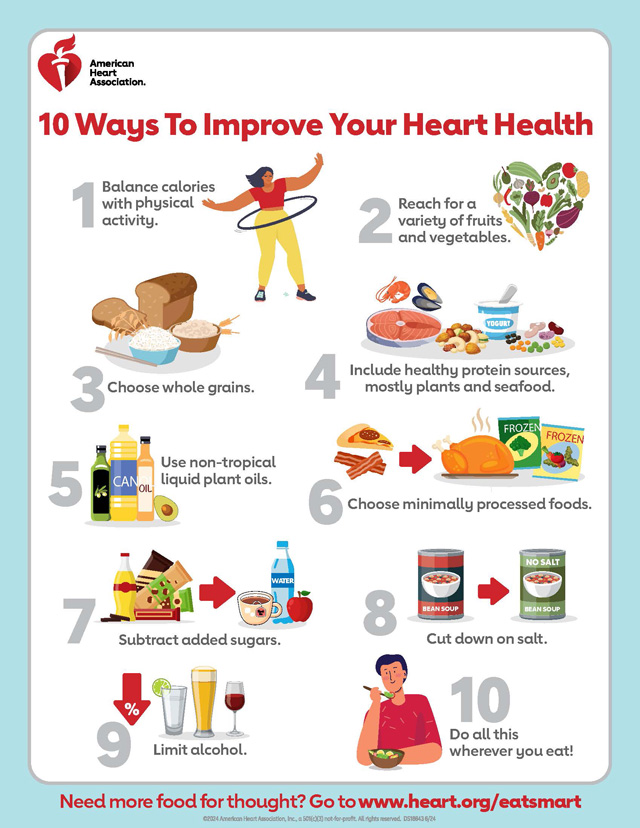Revolutionizing Your Heart Health: 10 Proven Strategies to Supercharge Your Well-being

When it comes to our overall health, the heart is often the most overlooked organ – until it’s too late. Cardiovascular disease remains the leading cause of death globally, accounting for millions of lives lost each year. However, the good news is that there are simple, actionable steps you can take to safeguard your heart and cultivate a lifetime of well-being.
In this article, we’ll delve into the top 10 evidence-backed tips to revolutionize your heart health, empowering you to take control of your cardiovascular wellbeing.
Get Moving with Aerobic Exercise
Aerobic exercise, also known as cardio, is essential for strengthening your heart and enhancing circulation. Engage in at least 150 minutes of moderate-intensity aerobic physical activity or 75 minutes of vigorous-intensity aerobic physical activity per week. You can break this down into 30 minutes a day, five days a week, to reap the rewards of improved cardiovascular health.
Eat to Thrive with a Balanced Diet
Nourish your heart with a wholesome diet rich in fruits, vegetables, lean proteins, and whole grains. Include omega-3 fatty acids from sources like fatty fish, flaxseeds, and walnuts, which support heart health by reducing inflammation and triglycerides.
Stay Hydrated and Watch Your Blood Pressure
Drinking enough water is essential for maintaining healthy blood pressure, which is crucial for cardiovascular health. Aim for at least eight glasses of water per day, and monitor your blood pressure regularly to ensure it’s within a healthy range.
Stress Less and Laugh More
Chronic stress can have a profoundly negative impact on your heart health, while laughter has been shown to have numerous benefits, including lowering blood pressure and boosting mood. Make time for relaxation techniques, such as meditation, yoga, or deep breathing exercises, and laugh often to keep your heart light and happy.
Prioritize Sleep for a Healthy Heart
Adequate sleep is essential for overall health, and your heart is no exception. Aim for 7-8 hours of sleep per night to help regulate stress hormones, repair damage to your heart and blood vessels, and keep your heart healthy.
Limit Your Intake of Processed and Sugary Foods
Processed and sugary foods are notorious for being high in unhealthy fats, sodium, and added sugars, which can wreak havoc on your heart health. Opt for whole, nutrient-dense foods instead, and read labels carefully to avoid hidden dangers.
Stay Social and Connected
Social connections are vital for emotional well-being, which in turn supports heart health. Make time for friends and loved ones, and engage in activities that bring you joy and a sense of belonging.
Don’t Smoke and Limit Your Alcohol Intake
Smoking is a significant risk factor for cardiovascular disease, while excessive alcohol consumption can also harm your heart. Quit smoking if you haven’t already, and limit your alcohol intake to moderate levels (one drink per day for women and two drinks per day for men).
Get Enough Vitamin D and Potassium
Vitamin D and potassium are essential for heart health, with vitamin D supporting blood pressure regulation and potassium helping to lower blood pressure. Spend time outdoors to boost your vitamin D levels, and include potassium-rich foods like bananas, leafy greens, and sweet potatoes in your diet.
Monitor Your Cholesterol Levels
High levels of low-density lipoprotein (LDL) cholesterol, also known as "bad" cholesterol, can significantly increase your risk of cardiovascular disease. Get your cholesterol levels checked regularly, and work with your healthcare provider to develop a plan to manage your cholesterol if necessary.
In conclusion, taking care of your heart health is a multifaceted journey that requires attention to various aspects of your lifestyle. By incorporating these 10 evidence-backed tips into your daily routine, you’ll be well on your way to revolutionizing your heart health and setting yourself up for a lifetime of vitality and well-being. Remember, every small step counts, and the journey to optimal heart health is worth taking.






